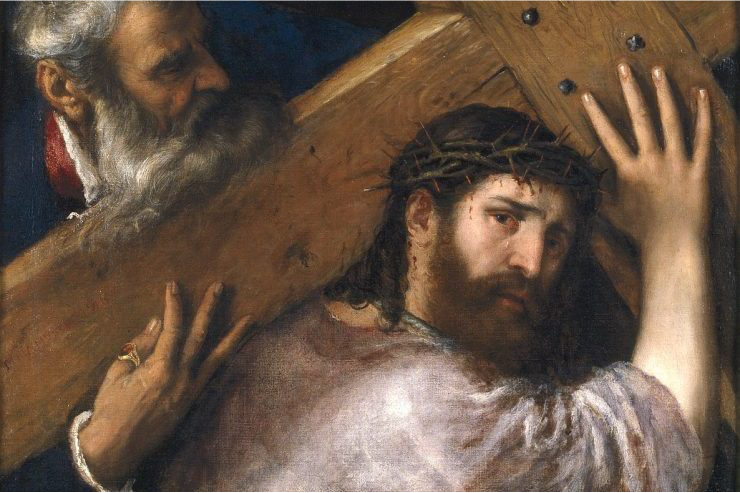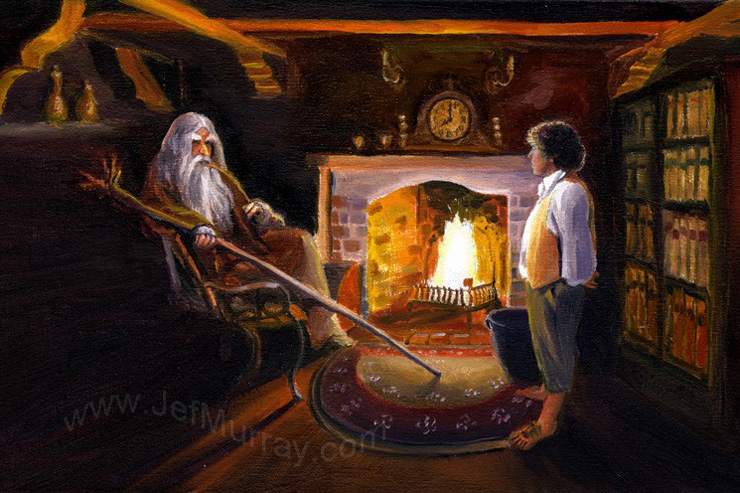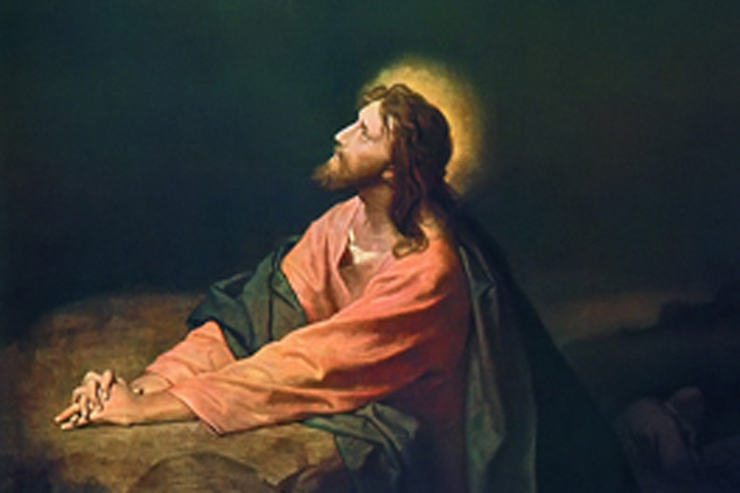
When I was younger I watched a South Park episode about the premiere of the movie, The Passion of the Christ, in which the characters determined that it was silly for people to focus on the death of Jesus, arguing that we should merely focus on His life instead. At the time, I was enamored with this simple thought and succumbed to the temptation to strip Jesus of His greatest honor as Savior. Since studying and teaching theology, I have come to see how enormous a loss it would be if everyone took the cartoon’s advice.
So then, why do we focus so much on the Death of Christ?
To answer the question, we must determine who is at fault for Jesus’s death. First and foremost, we know that Jesus Himself is innocent. In fact, even the arbiter of His trial, Pilate, thought so as he tried to release Jesus, and when that did not work, he washed his hands of the matter.
However, we do not place all the blame on the Jews either. Catechism ¶597 tells us that “we cannot lay responsibility for the trial [of Jesus] on the Jews in Jerusalem as a whole…” This is particularly the case, as Pope Benedict XVI pointed out in his Jesus of Nazareth: Holy Week, in that we recognize that the entirety of the Jewish people were not present at the crucifixion and, therefore, it would be improper to blame all of the Jews. Furthermore, Jesus forgave all who were present (“Father, forgive them, they know not what they do.”) and St. Peter follows suit and accepts their ignorance in Acts 3:17.
St. Francis of Assisi gets to the heart of the matter as he adds, “Nor did demons crucify him; it is you who have crucified him and crucify him still, when you delight in your vices and sin.” It is our fault that Jesus is crucified, which is both a comfort and a horror. It is a comfort to know that He is then taking our sins upon Himself to save us. It is a horror because our sins are what put Jesus, Our All Loving God, through that torturous event.
This is why it is not only good but necessary for us to remember and focus on the Crucifixion and death of Christ. Remembering that our sins are what tortured and crucified Jesus can help us to keep from sinning. Recognizing that gossiping about someone is also hammering a crown of thorns on Christ’s Head or refusing to forgive someone is piercing Christ’s hand with a nail can at least cause a second thought on the reality of our actions.
We can also better appreciate the Paschal Mystery, which is the Suffering, Death, and Resurrection of Jesus, when we realize that Jesus has taken our punishment on the cross.
Grace through Contemplating the Paschal Mystery
More than a deterrent from sin, there is great grace found by those who contemplate on the sacrifice of Jesus. We focus on His death in prayer in order to appreciate His sacrifice and unite our sufferings to His. Jesus takes our sufferings not to simply make us feel better, but to allow us to participate in offering up for our sins and the sins of the whole world.
Furthermore, there is power found in meditation on the death of Jesus. If we fall into the practice of running to Jesus on the cross in our minds and hearts every time we are scared, sorrowful, in need, lonely, or bitter, we will be greatly satisfied with the effect that this prayer brings us. Even if it is not noticed right away, it is impossible to meditate on the merciful passion of Jesus without it touching our hearts in some way.
The Witness of the Saints
We Christians also have the understanding that if we want to be holy and go to heaven, it’s good to do what the saints do. And the saints prayed and meditated on the death of Jesus. A quick list of what many saints did in this regard gives us ideas of how we can focus on the death of Jesus:
- Pray the Stations of the Cross, Passed down through tradition, it is firmly believed that our Blessed Mother was the first to pray the stations in hopes to grow closer to her Son. Many saints have followed in her footsteps since, while popes have encouraged it with support and indulgences.
- Pray before a Crucifix, An act that has brought about great miracles including St. Francis of Assisi receiving the call to rebuild the Church and St. Rita of Cascia being blessed with the wound of the crown of thorns on her head. Furthermore, many specific prayers recited before a crucifix also have received indulgences.
- Sorrowful Mysteries of the Rosary, This mixes the meditation on the Death of Jesus with the indulgenced prayer promoted by Our Lady of Fatima. We can be sure that the newly canonized Mother Teresa would have prayed the “Sorrowful Mysteries”.
- Reading the Passion Narratives of Sacred Scripture, We can be certain that the saints read these particularly during the Lenten Season. Moreover, reading Scripture daily for half an hour is encouraged by an indulgence.
- Read the Meditations of the Saints on Christ’s Death, What better way to focus on Christ’s Death than to read how the Saints actually did this. Wonderful works include those from Saint Catherine Anne Emerich, St. Alphonsus Liguori, St. Faustina, and St. John Paul II.
Source of the Sacraments and Highest Prayer
The Church continues to focus on the death of Jesus because it is this sacrifice that gives grace to the sacramental life of the Church. Without Christ’s crucifixion, the sacraments would be mere signs without supernatural effect. This would leave us without both communion with God on earth and in heaven.
Also, the Church herself specifically seeks to participate in the Paschal Mystery every day in the Most Holy Mass. It is in the Eucharistic Sacrifice, the Church’s highest prayer, that we find Mt. Calvary re-presented to us. It is not a repeated sacrifice of the God man, but the same one brought before us mystically.
In this way, we could see that the Church actually focuses on the Death of Jesus a lot. It is at the center of our daily life in the source and summit of grace. Finally, without Christ’s sacrifice, there would be no life running through her veins, no grace to sanctify her members, no means of redeeming fallen mankind.
His Death Brings Us Life
We can see then that it would be wrong to minimize the importance of the Death of Jesus. To sum up, we need to remember to focus on His death to help us fight against our sins, to unite our suffering, and find the holiness of the saints. Furthermore, celebrating His Death in Mass and receiving its effects through the efficacious signs of the sacraments bring us life. And without the life His Death gives us, our suffering will be too much for us.















